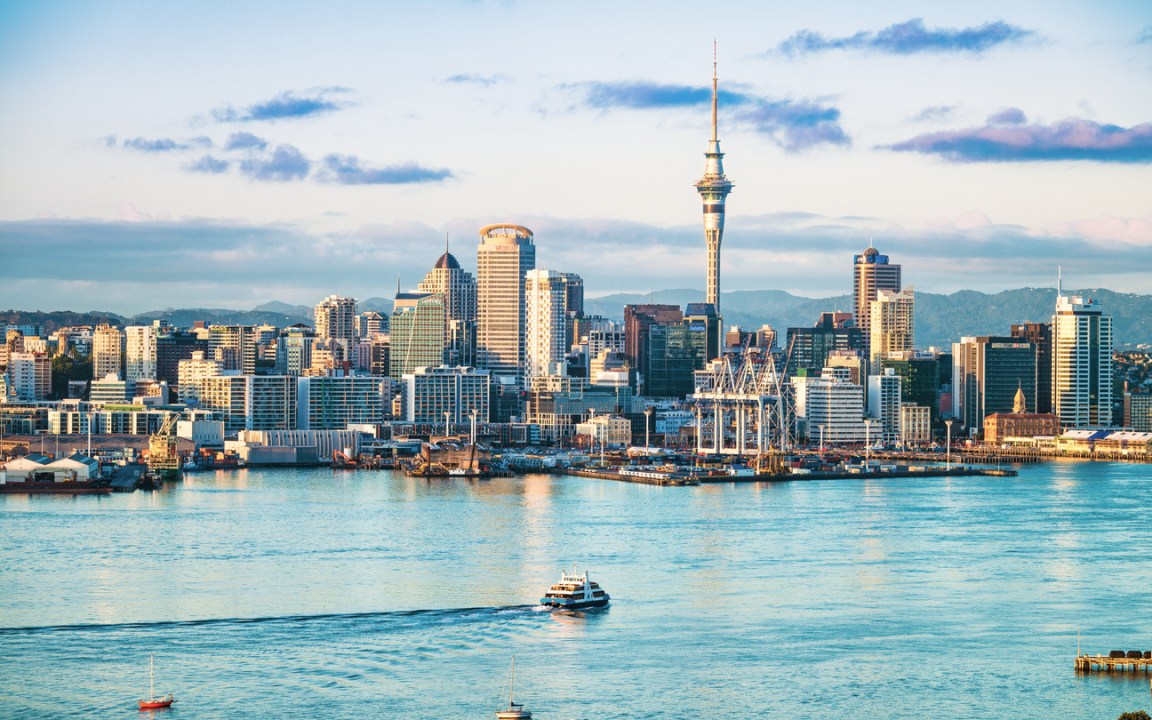Heading to the UK is a longstanding rite of cultural passage for many Kiwis. People like my youngest son, who will be visiting Britain for the first time this autumn, are a big part of the tradition. But so is returning home again.
New migration figures are putting paid to that last bit. Record numbers of New Zealanders appear to be picking up sticks and decamping from the Antipodes, and a lot of them aren’t bothering with return tickets.
It may be that New Zealand’s charms are wearing thin
What the ultimate cost of this is for their nation remains something of an open question, but for now the numbers are ‘just phenomenal’, says Brad Olsen, an economist with the Wellington-based company Infometrics.
In its latest data, Stats NZ reports an unprecedented net migration loss in the year to April 2024 of 56,500 citizens. That’s a far higher number even in absolute terms – let alone an island nation a thirteenth of the population size – than last year’s net migration of 37,000 British nationals from the UK.
In all, 80,200 New Zealand citizens moved abroad during this period, almost double the pre-Covid tally, with just 24,900 returning. This is well up on the previous net-loss record of 44,400, in February 2012.
Nearby Australia remains a popular long-term destination for departees. But, as one might also expect for a South Pacific country where nearly one in 20 residents are themselves British-born, those with their luggage tagged for Heathrow also seem to be on an upward trend.
While New Zealand does not collect data on where every departing citizen ends up, anecdotal reports and what’s known about specific visas offer a few clues.
According to the local British High Commission in Wellington, the UK’s Youth Mobility Scheme, previously known as ‘tier 5’, saw 3,699 new visas granted to young Kiwis five years ago. Last year, that number went up to 5,333, with this year likely to be larger still.
Part of the story has to do with a pent-up residue from the Covid years, during which almost nobody was able to leave ‘Fortress New Zealand’ and even fewer outsiders were allowed in.
But it may also be that New Zealand’s charms are wearing thin – including, one assumes, for those mulling an international change of address. Serious crime is up, employment prospects are down and, for reasons attributable to both, the downtowns of some major urban centres currently look as if they have seen better days.
Galloping price increases have also been the order of the day since the spendthrift time of the last Labour government, which was booted out of office late last year.
Officially, inflation peaked two years ago at 7.3 per cent. But at the supermarket checkout it still doesn’t feel like it has come down. Brits love to grizzle about their own basic supermarket prices, but New Zealand’s price tags leave most of them in the shade. Not least because every item on the shelf (including food staples) attracts a consumption tax and, in some cases, additional excise taxes which are themselves taxed as well. (That’s why a bottle of Kiwi bubbly is cheaper to buy in London than Auckland.)
Nevertheless, in its latest economic review this month, the central Reserve Bank signalled that inflation may finally be returning to its acceptable upper limit of 3 per cent – a feat achieved only after a succession of Bank Rate hikes pushed the economy into a two-year-long recession.
At the same time as record numbers of nationals are leaving for the long-term, however, record numbers of foreign migrants are also arriving in droves.
Suddenly, or so it seems, a myriad of Filipino bus drivers are in evidence. Chinese food workers, too. And those who seek care-support for family members often find themselves dealing with Indian workers.
All of which carries many positives, but also obvious economic pressures. The lack of housing, for example, may have its own effect on younger locals thinking about leaving. Conceding that the arrival trend has now hit ‘unsustainable’ levels, the country’s immigration minister, Erica Stanford recently introduced new visa-fee hikes that she says will dampen the enthusiasm.
Given that migration trends for any rich-world nation are seldom entirely good, perhaps the government could also encourage a little more discussion around the subject – which has been on political ‘mute’ here for years. It’s been far quieter at any rate than the patter of feet in the country’s airport departure lounges.








Comments